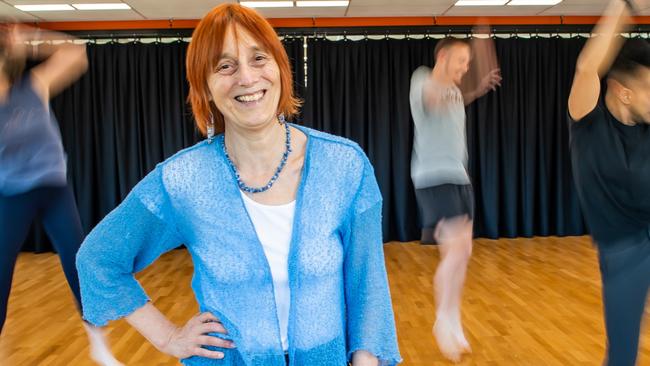Springfield Dr Ineke Vergeer reveals link between mental health and therapy dance
An Ipswich health researcher has uncovered a link between substance abuse rehabilitation and dance therapy.

Ipswich
Don't miss out on the headlines from Ipswich. Followed categories will be added to My News.
A groundbreaking study into ‘conscious dancing’ revealed dancers suffering from a range of mental health issues benefited from the alternative health practice.
Springfield University of Southern Queensland physical activity and health researcher Dr Ineke Vergeer said during the worldwide study 98 per cent of the participants reported their mood improved and they were more present.
Among those 1000 dancers, 81 per cent said they suffered from at least one of the following stress-related health issues; chronic pain, depression, trauma, anxiety, and substance abuse/addiction.
91 per cent of dancers said the practice helped them cope with anxiety or depression, and 88 88 per cent with addiction.
Dr Vergeer said the free moving and non-judgmental dance classes showed conscious dance may have greater benefits to mental health than common forms of dance.
“While the psychological, wellbeing effects of dancing are well documented, we were still quite surprised by the number of participants who reported therapeutic effects,” she said.
“(Conscious dancing) allows you to explore and express how you feel through movement.
“You don’t have to learn any steps and there’s no pressure to perform, which makes it easier to relax and for your body and mind to get into a state of flow.”
Dr Vergeer said more research is needed to evaluate the role of conscious dance in improving health outcomes.
“It’s a physical activity, but can also be meditative and spiritual, as well as emotional,” she said.
“People can express themselves freely in a safe space and connect with their inner-self without having to conform to ideas of what dance should be.”
The study also found there were long term benefits of conscious dance.
Participants who had been dancing for more than five years had significantly higher levels of mindfulness and happiness.
Alongside fellow researchers Dr Kelsey Laird and Dr Prabha Siddarth from the University of California, and Dr Sarah Hennelly from Oxford Brookes University, the study was published in the Alternative Health Services journal of Complementary Therapies.


